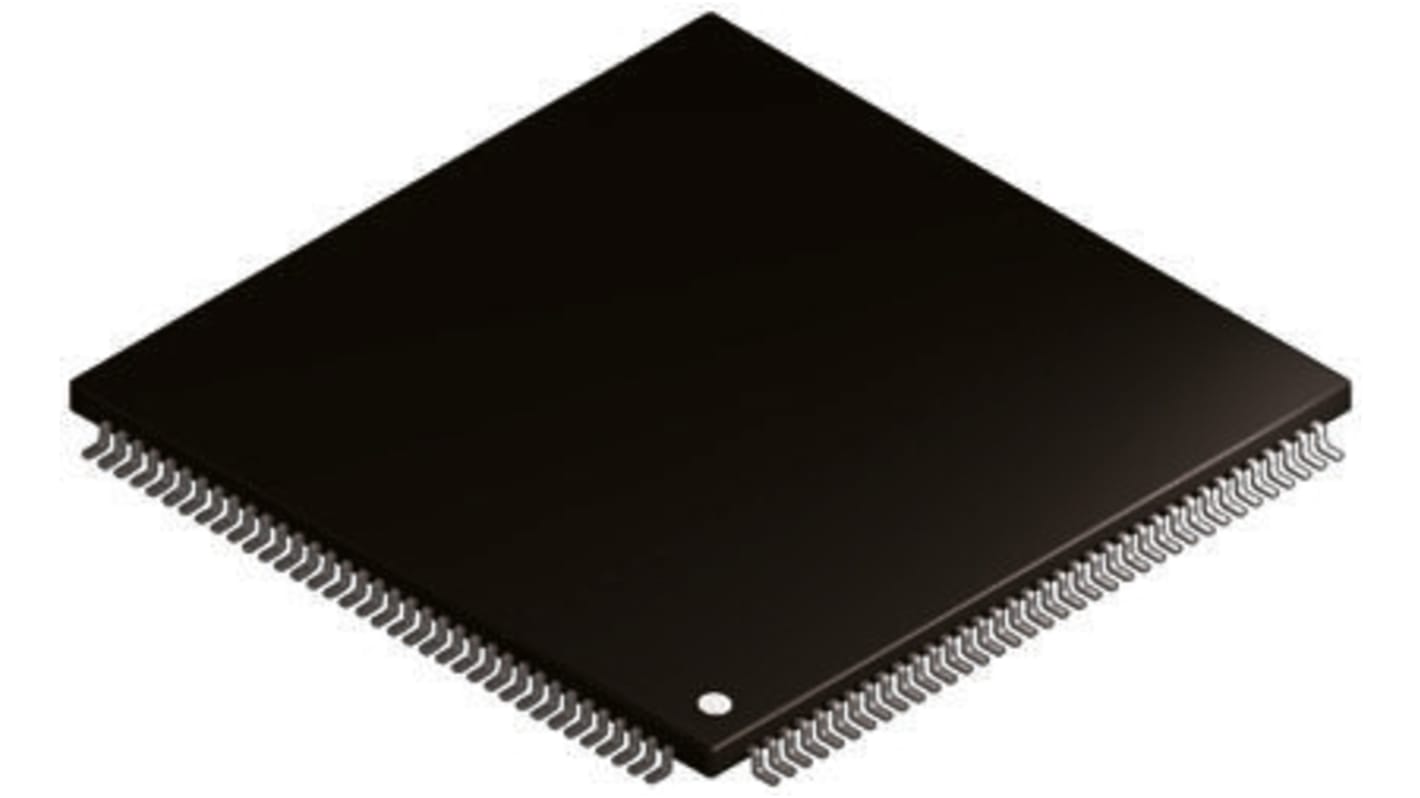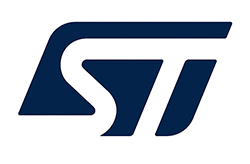STMicroelectronics, 32 bit ARM Cortex M3, STM32F217ZG Microcontroller, 120 MHz, 1024kB FLASH, 144-Pin LQFP
- RS Stock No.:
- 189-3845
- Mfr. Part No.:
- STM32F217ZGT6
- Brand:
- STMicroelectronics

Subtotal (1 tray of 60 units)*
£600.72
(exc. VAT)
£720.84
(inc. VAT)
FREE delivery for orders over £50.00
- Shipping from 29 June 2026
Units | Per unit | Per Tray* |
|---|---|---|
| 60 + | £10.012 | £600.72 |
*price indicative
- RS Stock No.:
- 189-3845
- Mfr. Part No.:
- STM32F217ZGT6
- Brand:
- STMicroelectronics
Select all | Attribute | Value |
|---|---|---|
| Brand | STMicroelectronics | |
| Product Type | Microcontroller | |
| Series | STM32F217ZG | |
| Package Type | LQFP | |
| Mount Type | Surface | |
| Pin Count | 144 | |
| Device Core | ARM Cortex M3 | |
| Data Bus Width | 32bit | |
| Program Memory Size | 1024kB | |
| Maximum Clock Frequency | 120MHz | |
| RAM Size | 128kB | |
| Maximum Supply Voltage | 3.6V | |
| Minimum Operating Temperature | -40°C | |
| Maximum Operating Temperature | 85°C | |
| Width | 20.2 mm | |
| Length | 20.2mm | |
| Height | 1.45mm | |
| DACs | 2 x 12 Bit | |
| Maximum Power Dissipation Pd | 500mW | |
| Standards/Approvals | FBI | |
| Minimum Supply Voltage | 1.8V | |
| ADCs | 24 x 12 Bit | |
| Instruction Set Architecture | RISC | |
| Automotive Standard | No | |
| Program Memory Type | FLASH | |
| Select all | ||
|---|---|---|
Brand STMicroelectronics | ||
Product Type Microcontroller | ||
Series STM32F217ZG | ||
Package Type LQFP | ||
Mount Type Surface | ||
Pin Count 144 | ||
Device Core ARM Cortex M3 | ||
Data Bus Width 32bit | ||
Program Memory Size 1024kB | ||
Maximum Clock Frequency 120MHz | ||
RAM Size 128kB | ||
Maximum Supply Voltage 3.6V | ||
Minimum Operating Temperature -40°C | ||
Maximum Operating Temperature 85°C | ||
Width 20.2 mm | ||
Length 20.2mm | ||
Height 1.45mm | ||
DACs 2 x 12 Bit | ||
Maximum Power Dissipation Pd 500mW | ||
Standards/Approvals FBI | ||
Minimum Supply Voltage 1.8V | ||
ADCs 24 x 12 Bit | ||
Instruction Set Architecture RISC | ||
Automotive Standard No | ||
Program Memory Type FLASH | ||
Related links
- STMicroelectronics STM32F217ZGT6 STM32F217ZG Microcontroller 1024kB FLASH, 144-Pin LQFP
- STMicroelectronics STM32F205ZG Microcontroller 1024kB FLASH, 144-Pin LQFP
- STMicroelectronics STM32F207ZG Microcontroller 1024kB FLASH, 144-Pin LQFP
- STMicroelectronics STM32F207ZGT7 STM32F207ZG Microcontroller 1024kB FLASH, 144-Pin LQFP
- STMicroelectronics STM32F205ZGT6 STM32F205ZG Microcontroller 1024kB FLASH, 144-Pin LQFP
- STMicroelectronics STM32F207ZGT6 STM32F207ZG Microcontroller 1024kB FLASH, 144-Pin LQFP
- NXP MK60FN1M0VLQ12 ARM Cortex M4 120 MHz 144-Pin LQFP
- NXP ARM Cortex M4 120 MHz 144-Pin LQFP
